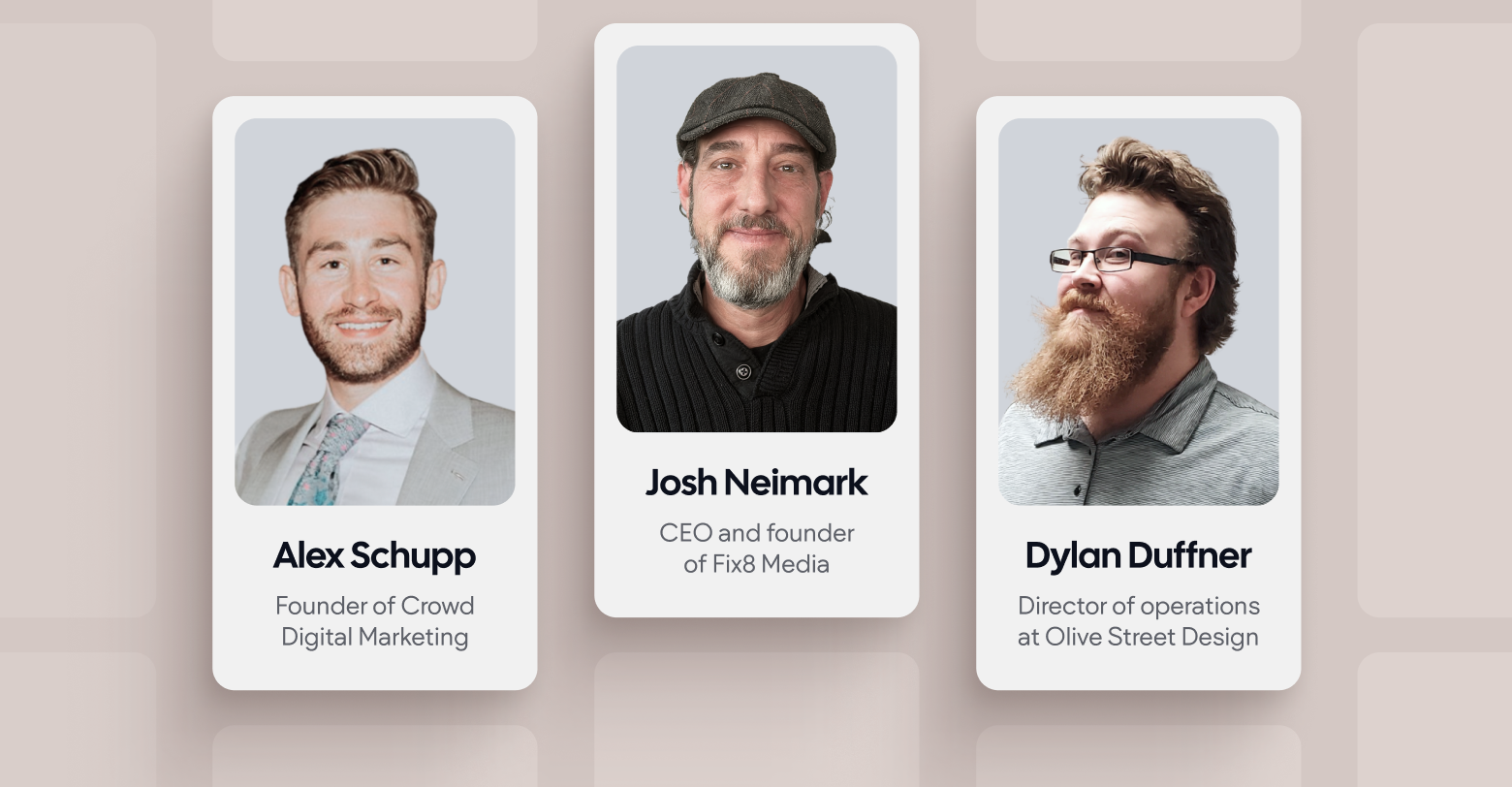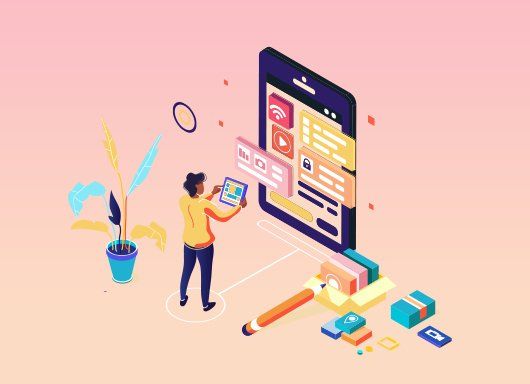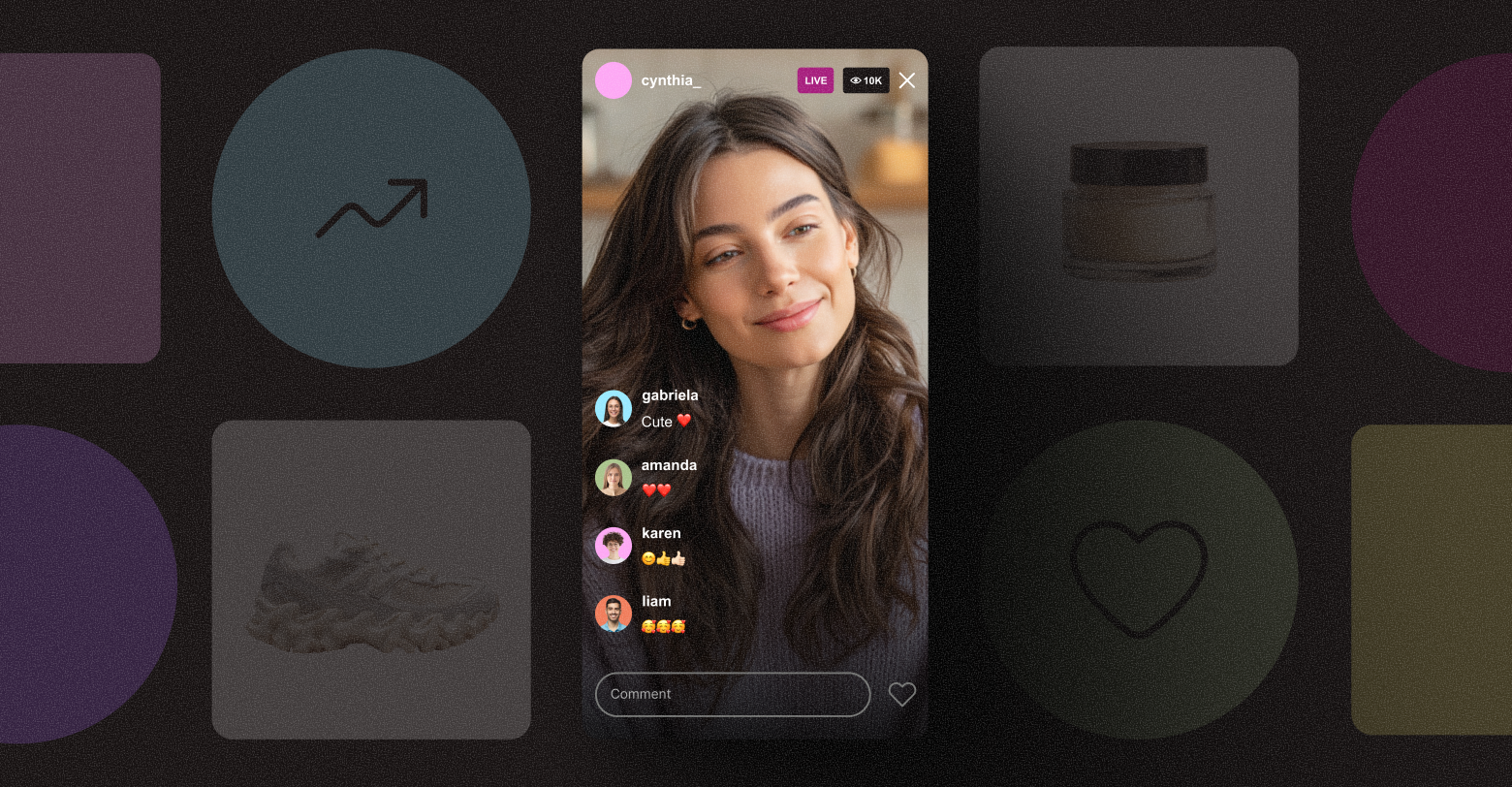Handing off a website to a client is more than just a transfer of digital assets; it's a crucial moment that can either set the stage for a thriving partnership or lead to ongoing frustration. Successful agencies understand that the devil—and the magic—lives in the details of this crucial process.
To get all the juicy, specific details, we've gathered insights from agency leaders who have perfected the art of website handoffs, revealing their strategies and secrets that go beyond the basics. Dylan Duffner, Director of Operations at
Olive Street Design; Josh Neimark, CEO at
Fix8 Media; and Alex Schupp, Founder of
Crowd Digital Marketing, share their experiences and best practices for ensuring a seamless transition.
Throughout this exploration, you'll discover the nuanced approaches of experienced agency professionals who prioritize meticulous planning, tailored training, and ongoing support to ensure their clients not only receive a functional website but also feel empowered to manage it effectively post-launch. From customized training sessions that cater to diverse client needs to the strategic use of support tools and resources, these experts share how they navigate challenges and foster client independence while maintaining a strong support system.
Join us as we uncover details that often go unnoticed but make all the difference in client satisfaction and long-term collaboration.
Tailoring the process to clients’ level of involvement
While a templated approach to a website handoff process could be very efficient, some agencies highlight the importance of understanding clients and their specific needs and tailoring the handoff accordingly.
Dylan Duffner, Director of Operations at Olive Street Design, highlights:
"At the outset of a project, we determine if clients will need access to manage and upkeep their site or if they would simply prefer to have us modify their site for them when needed. We've found that a significant portion of clients are happy to be hands-off, and of those, only a small percentage have update needs on a regular basis. For those who will be more involved with their sites, we build the site with the understanding they will need to edit it themselves and work to ensure they won't need to interact with especially complex elements while preparing to provide training custom-tailored to their needs at the time of handoff. During any of these training sessions (after having walked them through their new site in detail), we make sure to close the meeting by asking if they have any remaining concerns about things they foresee interacting with on a regular basis."
Alex Schupp, Founder of Crowd Digital Marketing, adds:
“At Crowd Digital Marketing, our website handover process has been tailored from diverse client and partner feedback to meet the needs of two distinct types of clients: clients whose websites we manage and those who prefer a self-managed (DIY) approach. The process for each of these clients is structured similarly, but roles and permissions do change.”
Alex further explains: "First, we establish our role in website management, if any, and how to get in touch with our team to discuss questions or requests."
Dylan Duffner sums it up: “Understanding client needs and what their focus is for the site is crucial. We all know our expertise gets applied to built sites to handle things the client may never truly understand on a deep level, but we have to bear in mind that, to them, this may just be something to share recipes on or act as a menu of services to get clients booked on their sites. They usually need to know one or two specific ways to add information to their site, while the rest of the technical stuff won't matter to them.”
Routine training sessions and regular check-ins
While training sessions are better known as one-offs, there are those that offer weekly training sessions, as Josh Neimark, CEO at Fix8 Media, explains: "We offer free weekly training in The Duda platform every Wednesday. It's an incredible way of making sure we're empowering our clients with amazing toolsets."
Alex Schupp emphasizes: "We schedule monthly or quarterly calls with managed clients to discuss site analytics and plan new website updates to help achieve their goals."
These ongoing interactions help clients feel supported and ensure their websites continue to meet their evolving needs. Regularly scheduled calls provide opportunities to address any emerging issues, discuss performance metrics, and plan for future enhancements, keeping the
client-agency relationship strong and productive.
A white-labeled help portal
Support doesn’t end with the handoff. Providing clients with resources like document libraries, video tutorials, and help portals ensures they can find answers to their questions independently.
Dylan Duffner notes:
"We also provide the White Label Help Portal Duda offers so they can search for anything they might come across or be curious about that wasn't explicitly covered in our training."
Josh Neimark shares:
"We maintain an entire Duda website tutorial video library. This library is created by me and updated as needed."
These resources are invaluable for clients who need a refresher or encounter issues outside of regular support hours. By making these tools readily available, agencies empower clients to troubleshoot common problems on their own, reducing the need for constant support and fostering a sense of independence. Here, a white-labeled support portal is an essential asset in providing the necessary support while maintaining the agency’s brand identity.
Proactively addressing domain and previous hosting challenges
Challenges can (and probably will) arise during the handoff process. Addressing these proactively can prevent minor issues from becoming major problems.
Josh Neimark recalls:
"The biggest challenge we encounter is clients not knowing where their domain is registered. In some cases, it turns out our clients may not even own a domain that they thought they did. We step in and get on the call live with the clients to resolve whatever issues need to be resolved."
By being proactive and ready to assist with unexpected issues, agencies can ensure a smoother transition for their clients. This hands-on approach during critical moments not only resolves immediate problems but also builds client trust and confidence in the agency's commitment to their success.
A formal sign-off and approval
Securing formal sign-off and approval from clients is a critical step to ensure that all expectations have been met before the official launch. Josh Neimark describes Fix8 Media’s approach:
"We have a pretty defined process here at our agency, and when we get to the end of the project, the first step is for our team to fully QA and test the website. Once the testing is complete, we send it to the client and ask for formal sign-off and approval prior to launch. At that point, if the client has any outstanding items, they go in a punch list and we then execute the punch list and again ask for approval for launch."
This process ensures that both the agency and the client are aligned on the final product and that any last-minute adjustments can be made before the website goes live. By obtaining formal approval, agencies can avoid misunderstandings and ensure that clients are completely satisfied with their new website.
Final thoughts
The handoff process is a pivotal moment in any web development project. By paying attention to the details and dedicating time to understanding each client's unique needs, agencies can transform a standard handoff into a unique, value-packed one.
The insights shared by Dylan Duffner, Josh Neimark, and Alex Schupp highlight the importance of tailored approaches, robust training sessions, and ongoing support in achieving this goal.
As you refine your own handoff process, consider the strategies and small details that can make a significant difference in client satisfaction and long-term collaboration.








